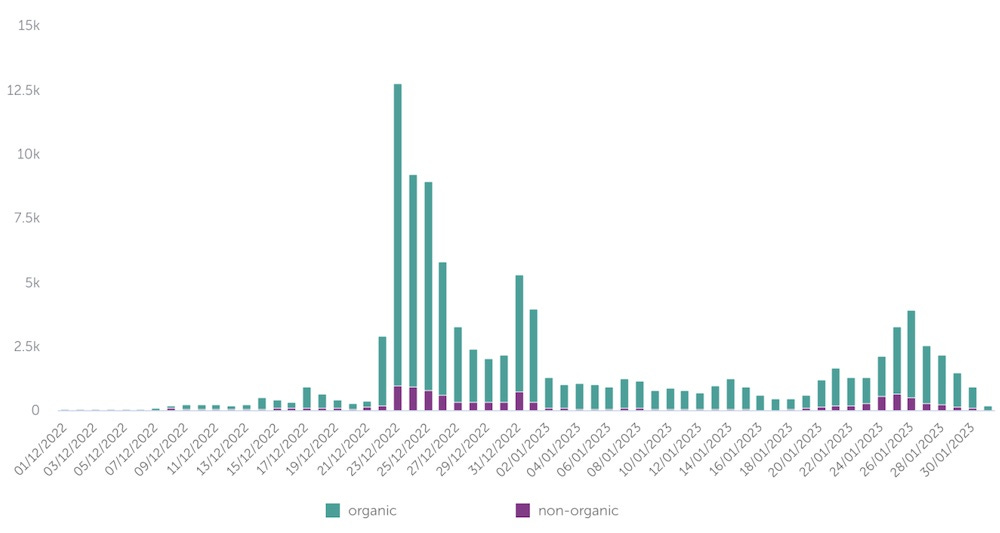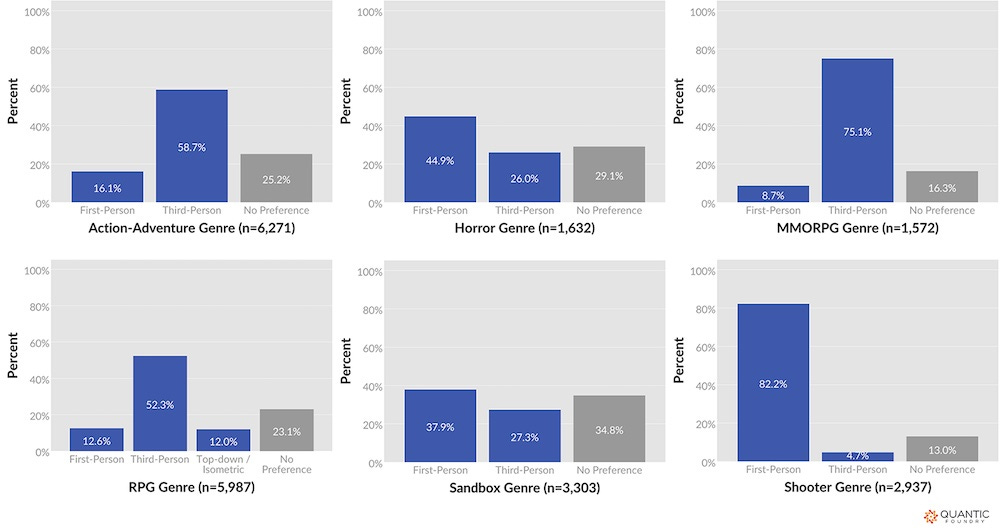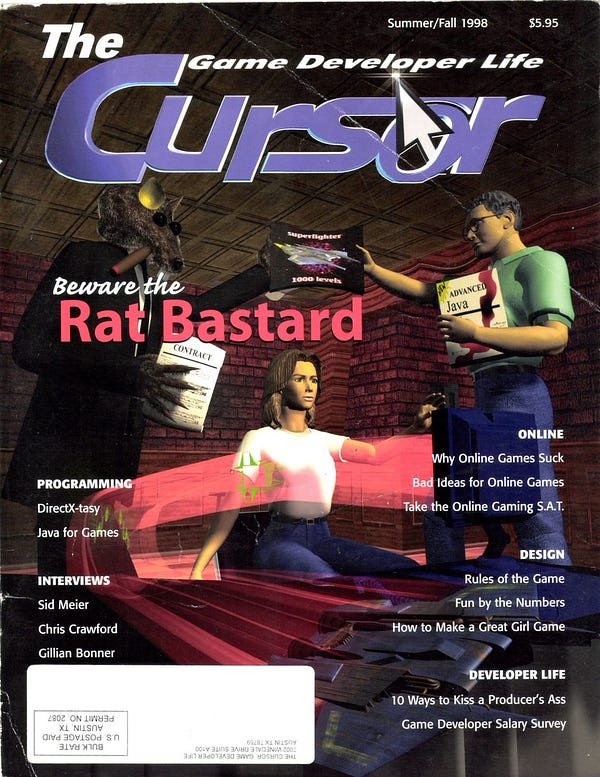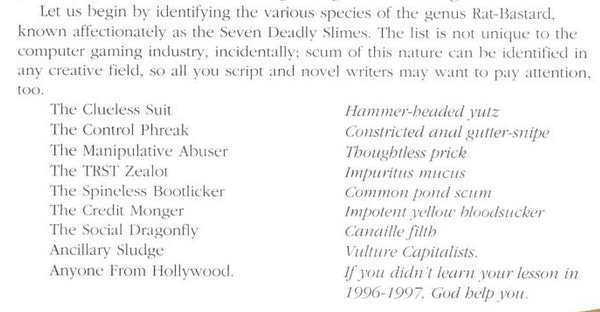Winning at game discovery on TikTok (& Instagram Reels!)
Publikováno: 1.2.2023
Also: why network effects help platforms, perspectives for game genres & more...
[The GameDiscoverCo game discovery newsletter is written by ‘how people find your game’ expert & company founder Simon Carless, and is a regular look at how people discover and buy video games in the 2020s.]
Heyy, nice to see you. We haven’t seen you in a while - come on in, grab a bottled water, pull up a chair. Yes, this is the discovery class - you know Eugene over there, right? How about Deborah? We’ll get straight into our mantras, then…
*grant me the gift of people on the internet noticing my game… grant me the gift of people on the internet noticing my game… grant me the gift of people on the internet noticing my game… in this, the realm of the attention seeker, we beseech thee… amen.*
[Heads up: our GameDiscoverCo Plus paid subscription includes our Friday ‘exclusive’ newsletter, exclusive Discord access, a login to our Steam ‘Hype’ & post-release game performance chart back-end, multiple eBooks & more. We highly recommend it…]
TikTok (& Reels): how virality can help your game
Dutch game designer Adriaan de Jongh is an interesting chap. You probably know him from his ‘hidden object’ hit Hidden Folks, which is on Apple Arcade, mobile as a whole, Steam, and a number of other platforms.
But most recently, he launched Secret Shuffle, “a music party game for 4 - 60 players who are all in the same room wearing headphones.” Personally, I dig these games that use electronic devices, but are also social - Johann Sebastian Joust and Heads Up! being two other great examples.
Anyhow, Adriaan had multiple viral videos on TikTok during the course of promoting Secret Shuffle, with this one (6.9 million views!) being the largest. And he discovered they materially contributed to interest in his game, which is kinda ‘local multiplayer only’, haha. Here’s the full purchase & play spikes from two Xmas-adjacent TikToks:
As a results of this, Adriaan wrote up a whole bunch of TikTok-related tips, which we’re going to try to distil down to specific takeaway for you all. A little bit like this:
TikTok’s advantage for devs & marketers is the possible ‘zero to 1,000’ boost: “TikTok videos can go viral even if you have 10 followers on TikTok. Make quick and joke-y videos using as many tools as TikTok provides, and maybe it’ll work for you too..” Adriaan said that on his viral videos, they seemed to pick up steam after people interacted with them a lot - the algorithm will then promote them aggressively.
Key tips on making videos: here’s some notable ones of Adriaan’s: “Use sounds & music through TikTok’s editor… use TikTok memes and language. Thumbstoppers are super important. just like with ads. if the first few seconds of your video aren’t immediately captivating, people just move on…. ‘hide’ your CTA (call to action). you’ll probably want to put your game’s name in there, but if it feels too much like an ad.”
Elements that seem to work on TikTok - here’s what he reckons:“Comedy / humor / dumb jokes. Definitely spend some time on TikTok understanding the language. One example: laughing is currently indicated with a skull emoji - do you feel old yet? [Prioritize] low quality video over high quality - variations on TikTok trends, both conceptual trends (like a specific dance), visual trends (like using specific filters), or sound and music trends (like using specific audio to explain something).”
As for the evolution of Adriaan’s TikTok posting, he says it took a while to get any traction, but his sixth video made it to >1 million views over time. A commenter said that one of his game’s modes - which has a social deception angle (!), was also known as ‘Mafia dance’ online. (Looks like there’s a Korean TV show of that name.)
So he added the TikTok hashtag #mafiadance to one of his follow-up videos - and that was the one that blew up to almost 7 million views. (BTW, we seem to be talking about social deception/deduction a lot in these newsletters recently. But hey, it’s a big thing!)
But that’s not all. Adriaan followed up with me a couple of days ago to reveal that the very same video that went viral on TikTok is also going big on Instagram Reels right now, to the tune of 1.3 million views and counting. You can see it (second hump!) in this AppsFlyer install data:

Overall, across iOS and Android, Secret Shuffle now has 130k installs and 2.3k full purchases. This is pretty darn good for a game that is being promoted 100% without paid ads right now, since it doesn’t monetize quite well/aggressively enough to scale those.
So sure, maybe this game isn’t scaled to the kind of size that makes sense for larger companies. But it’s a charming work of independent game art that has gone viral multiple times already thanks to its premise - and has the real-world data to prove it!
Follow-up: positive network effects & giant games
Last Wednesday’s newsletter on why launching the same week as big games doesn’t tank your conversion rate created, as you might expect, quite a lot of chatter. So we wanted to excerpt some of the responses and extra data in a follow-up.
In particular, we heard from Joost Rietveld of the UCL School Of Management, who actually does research in this area, and has a Substack about platform competition and ‘big tech’. Joost explains:
“The question of ‘Can another big game release crush your launch sales?’ has been covered in the academic literature on platform competition to some extent. Folks have generally found that the entry of a blockbuster product can indeed have a positive effect on the sales of other products on the platform.
Here are some recent papers:
A study on mobile apps: "The findings reveal that popular app adoption by users increases the number of apps used and the duration of app usage, excluding the usage of popular apps, only within the platform offering a popular app."
A study on crowdfunding projects: "blockbuster projects have an overall positive effect on the performance of concurrent projects (overall effect), and such positive effect is stronger for related blockbusters (local effect) and blockbusters emerging before the focal project (temporal effect)."
And even a study on console video games: "we show sellers on the console video game platform generate a positive intertemporal spillover effect and expand the demand for other sellers, holding the set of platform adopters fixed."
Finally, here is a working paper (not yet peer reviewed) in the context of Spotify: "Expansion by a popular peer generates demand spillovers that overcome the effect of substitution and improve focal provider performance, while expansion by a less popular peer does not generate sufficient spillovers to overcome the negative effects of substitution."
These findings and the statistics presented in your newsletter may appear counterintuitive to some who view the world through a competitive dynamics lens. But these are platforms where demand for games is dependent on the number of active users. Entry by successful games attracts users to the platform, which may get amplified by the platform's recommendation algorithms, thus benefiting not only the successful entrant.”
Thanks, Joost! I was reminded that Valve’s 2018 decision to decrease the platform cut for the biggest-grossing Steam games uses this exact argument: “It’s always been apparent that successful games and their large audiences have a material impact on those network effects, so making sure Steam recognizes and continues to be an attractive platform for those games is an important goal for all participants in the network.”
So that’s the high-level research-y angle on things. Other interesting follow-ups included:
There were a lot of people who asked ‘sure, launching the same week as a big game isn’t bad - but how about a game in the same specific genre as you?’ The answer to this - and we looked - is that this doesn’t really tend to happen, in part because there are a lot of different styles of games. (The Supraland dev commented on Twitter: “Even the biggest games will only interest 1-2% of Steam users anyway.”)
However, Gryonline.pl’s Adrian Werner did spot a possible example, with the smaller stealth game Filcher launching the same week as the massive Deathloop back in 2021. My reply? No smoking gun: “'Hype conversion' on Filcher seems to be 0.18 which is basically average - it only had 340 Steam followers at launch. (I agree it likely made it more difficult to get [streamer] coverage tho!)”
Finally, Nine Dots’ Guillaume Boucher-Vidal (Outward) made some good ancillary points on ways being too close to a massive launch could be bad. He noted that big games taking over front-page space on more ‘curated’ non-Steam stores could be negative, and sometimes the paid ad market can be crowded/more expensive around the release of a big game. So… lots of things to bear in mind.
The game discovery news round-up..

And let’s finish things up for the week - at least until you Plus subscribers get that lovely Friday newsletter - with a look at the newest game discovery news we spotted:
On Monday, I said Xbox’s summer showcase would be at ‘E3 or not-E3’. Turns out it’ll be at not-E3, since “Xbox, Sony, and Nintendo won't be part of E3 2023 or have a presence on the Los Angeles Convention Center showfloor.” Rebooting E3 as a grand consumer spectacle was always a tall order - we’re hoping for a good B2B experience, tho.
Of course, February’s Steam Next Fest kicks off on Monday Feb. 6th, with hundreds of demos of upcoming PC games. Valve made an event trailer for it already, and big streamer Wanderbot just published an extensive marketing guide, for those in it. Good luck!
Deconstructor Of Fun’s 2023 predictions for the mobile game market are spicy, including a claim that organic discovery via ‘store features’ on mobile is basically dead: “When we finally got the first big featuring… it looked very promising. But while the impressions ballooned, they hardly translated to page views, let alone installs.”
Sony’s February PlayStation Plus ‘Essential’ picks are out - nice selection, actually: Evil Dead: The Game, OlliOlliWorld, Destiny 2: Beyond Light, Mafia: Definitive Edition. Noted in the same blog post: “the PlayStation Plus Collection that has been offered as a benefit to PlayStation Plus members on PS5 since 2020” will stop being available in May.
What have Steam Deck users been playing in January? There’s some new data on this, via Valve, with Elden Ring, Vampire Survivors, The Witcher 3, Stardew Valley, and Hades topping the ‘most played’ charts. (And the continued hit Brotato lower down!)
For those watching the ‘Meta being allowed to buy VR fitness app Supernatural’ tea-leaves for info into how the FTC’s aggression might go for other game biz cases, there are reports that “a pair of sealed orders deny the FTC’s request to block [Meta buying Within], but with a one-week delay that will give the FTC time to appeal.” Hm.
Somebody in our Plus-exclusive Discord asked about ‘discount history for VR games’, and we discovered that the Odeals.net website seems to have details for most Quest games - here’s Superhot VR. (And SteamDB has it for Steam VR titles.)
Bloomberg is claiming that“Sony… reduced projections for the initial launch of its PlayStation VR2 headset dramatically after early pre-orders disappointed”, and PlayStation tells GI.biz it has “not cut PlayStation VR 2 production numbers… [and is] seeing enthusiasm from PlayStation fans.” Perhaps… both can be true at once?
Weirdly, the YouTube video we picked for Monday’s Shell Shockers web game analysis was ‘privated’ by its uploader shortly after we published? So here’s another Shell Shockers ‘kill streak’ video, if you didn’t see the eggs in action…
Not directly game-related, but seeing a lot of enthusiasm for this Wired editorial from author/activist Cory Doctorow about ‘The ‘Enshittification’ of TikTok’, in which he says all platforms are first “good to their users; then they abuse their users to make things better for their business customers; finally, they abuse those business customers to claw back all the value for themselves. Then, they die.” Cradle to MySpace.
Quantic Foundry has interesting survey results on preferred camera perspective by genre, gender, and age (above); Xbox Series X and Xbox Series S price increase announced for Japan; did you know that Valve now supplies anti-DDoS protection to Apex Legends via Steam Datagram Relay, and it even works for non-Steam players?
Finally, the folks at the Video Game History Foundation (whom I help out), are unearthing a lot of great history via print magazines. Here’s a weird-ass ‘90s example:



[We’re GameDiscoverCo, an agency based around one simple issue: how do players find, buy and enjoy your premium PC or console game? We run the newsletter you’re reading, and provide consulting services for publishers, funds, and other smart game industry folks.]

